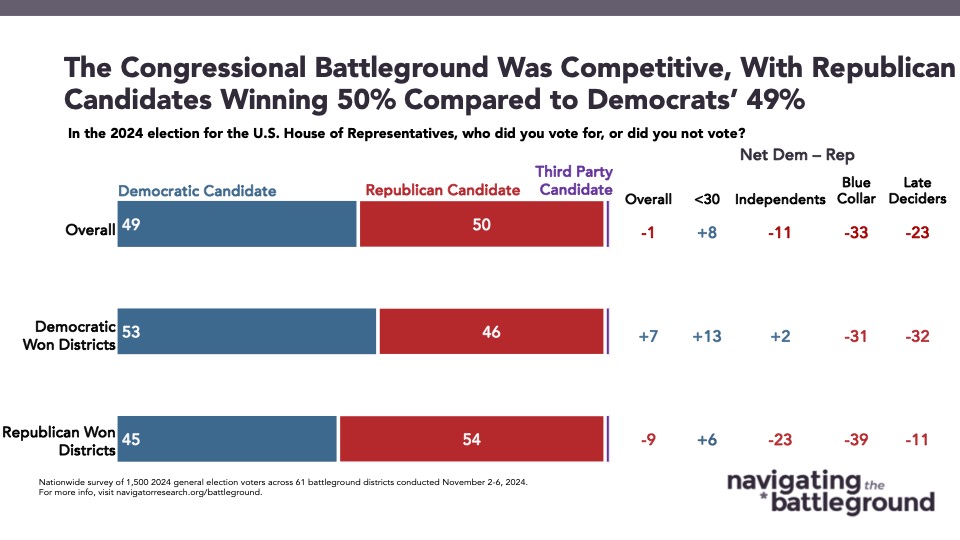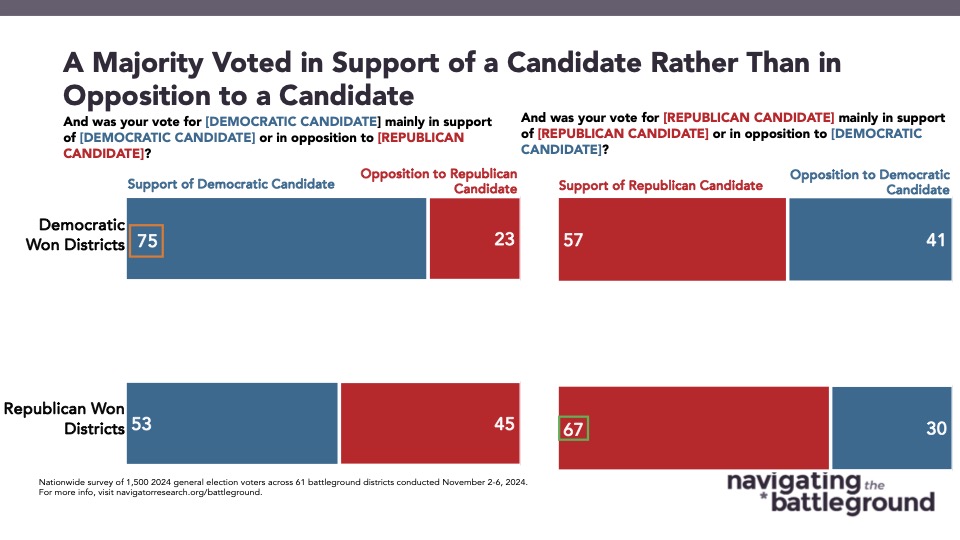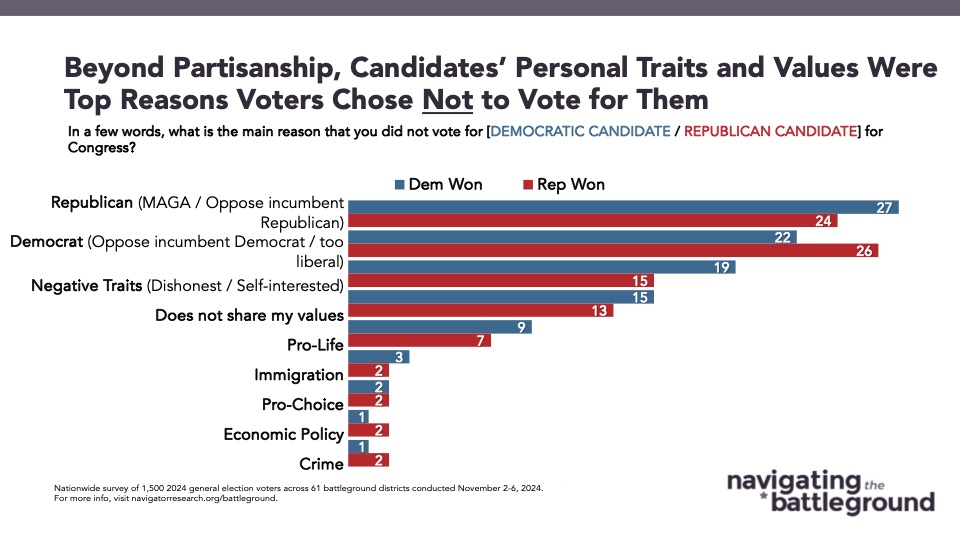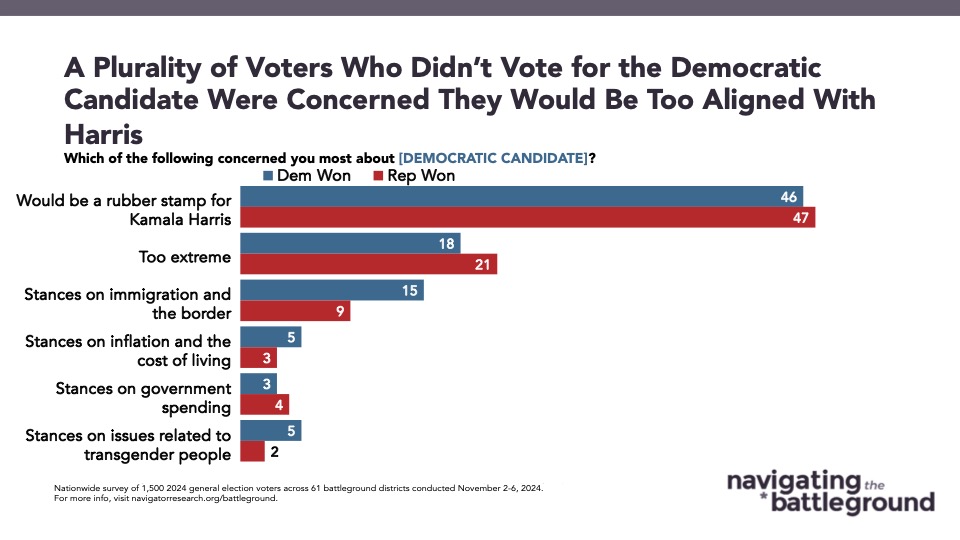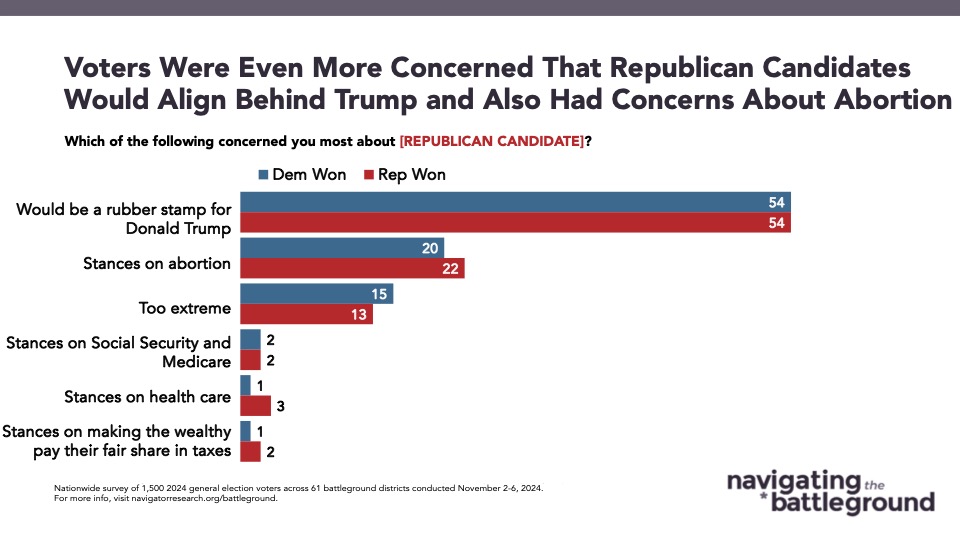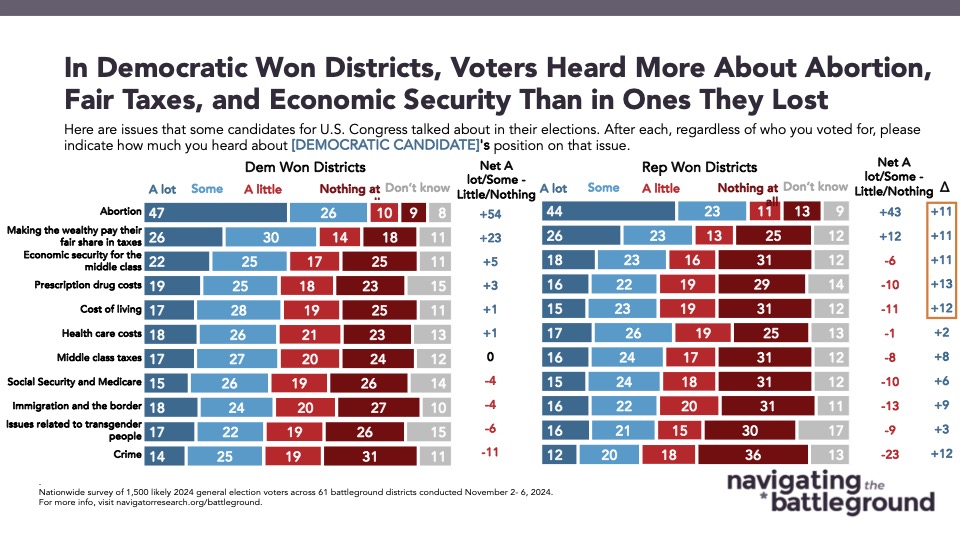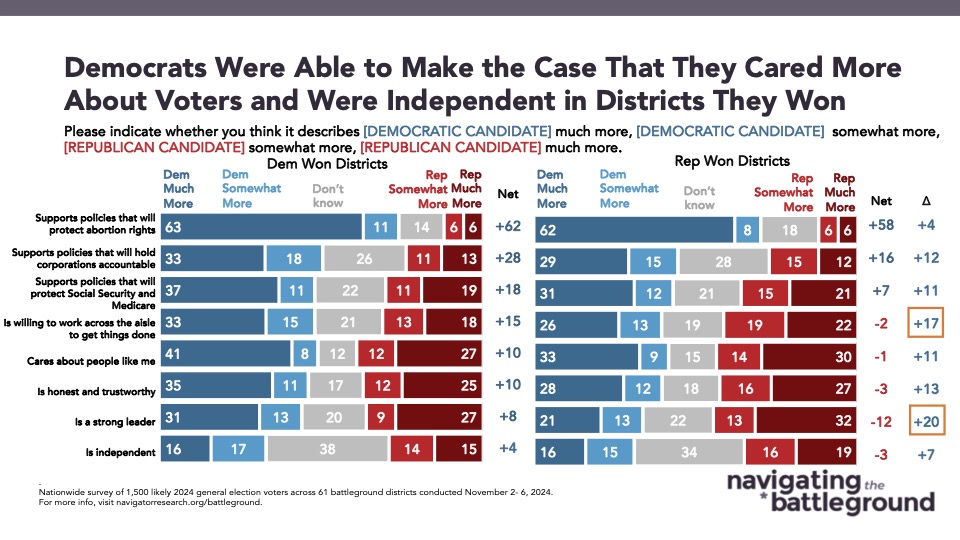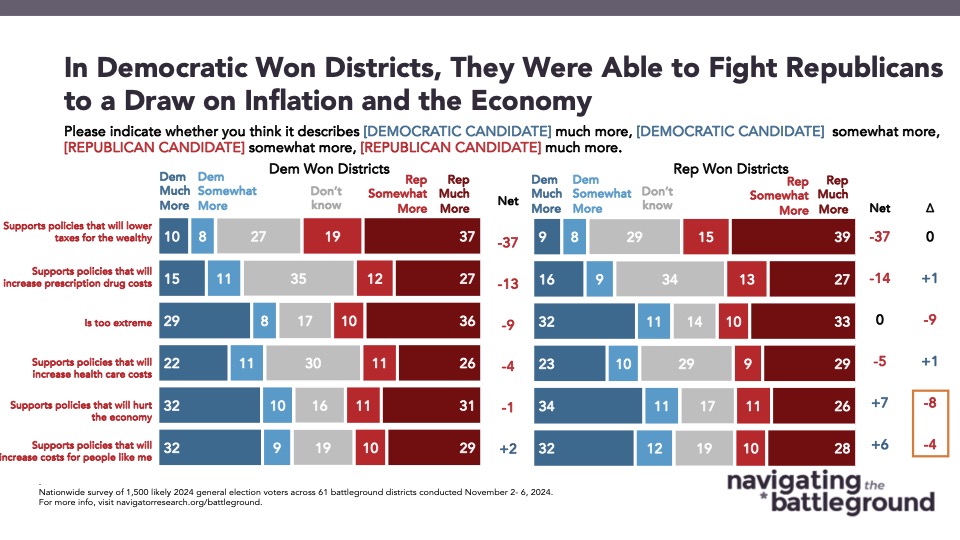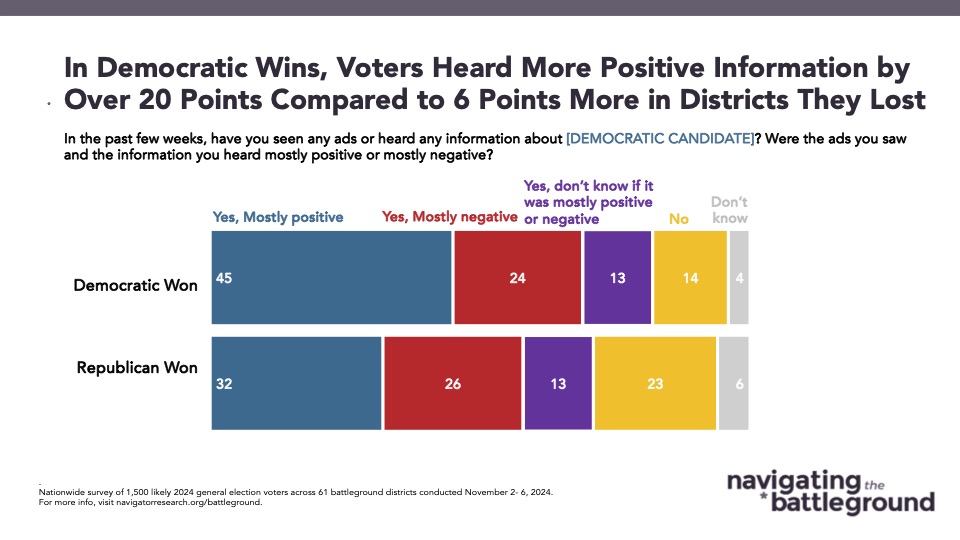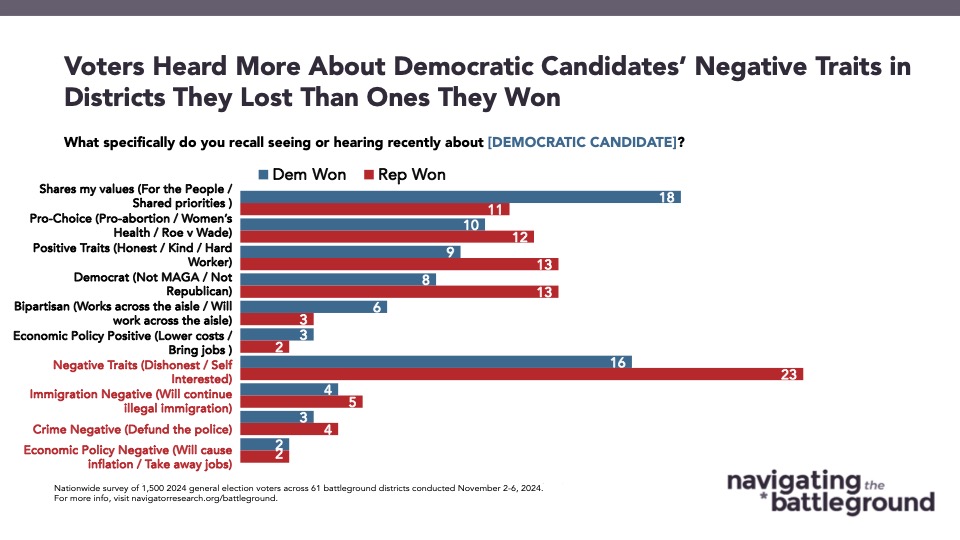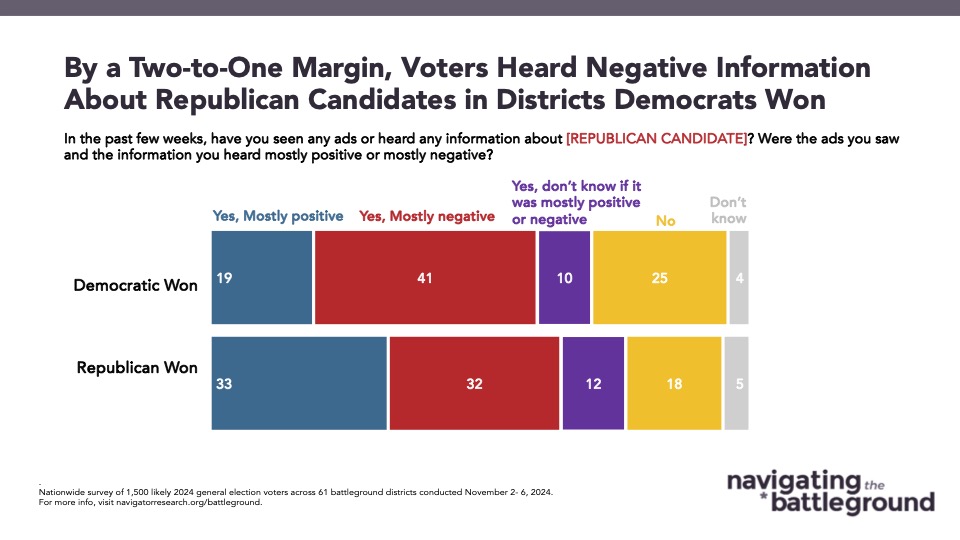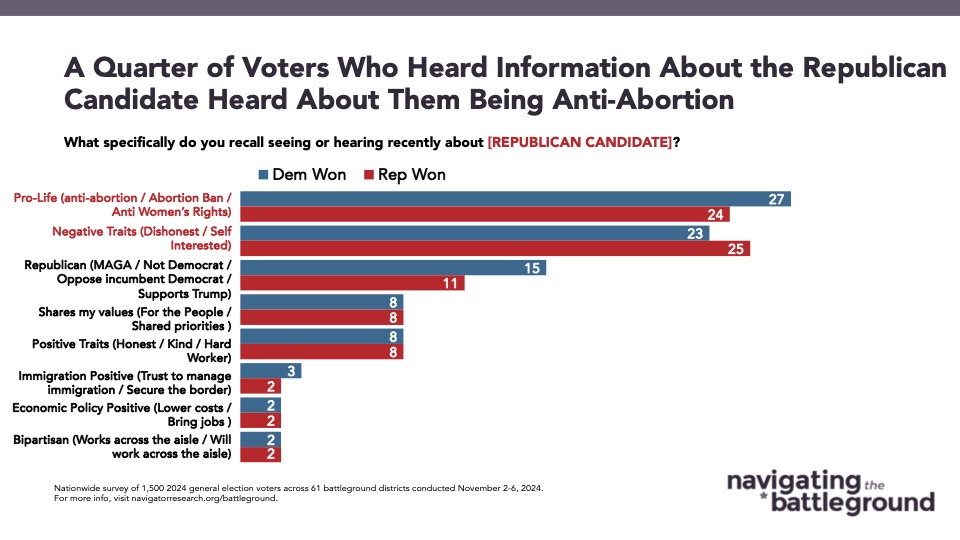Exit Poll: The Political Parties
This Navigator Research report analyzes the districts won by Democrats and Republicans, including what voters in these districts heard from each party, and what messages resonated or fell short.
The margin of victory was narrow in the congressional battleground with Republicans eking out a majority.
The congressional battleground was competitive, with Republicans receiving 50 percent of the vote to the Democrats’ 49 percent. In districts that Democrats won, they won by 7 points (53 percent Democratic candidate – 46 percent Republican candidate), while Republicans won by 9 points (45 percent Democratic candidate – 54 percent Republican candidate).
The greatest concern about both Republican and Democratic candidates was that they would be a rubber stamp for either Trump or Harris, however voters were more concerned that the Republican congressional candidates would be a rubber stamp for Donald Trump in both Republican won and Democratic won districts (54 percent), than the Democratic candidate being a rubber stamp for Kamala Harris in both Republican won (47 percent) and Democratic won districts (46 percent).
Voters in Democratic-won districts heard more about abortion, tax fairness, and economic security.
In the districts that Democrats won, the voters were more likely to hear from the Democratic candidate about abortion, tax fairness, and economic security than voters in districts that Republicans won. Voters in Democratic won districts heard a lot or some from Democrats about abortion (net +6; 73 percent Democrat wins – 67 percent Republican wins), making the wealthy pay their fair share (net +7; 56 percent Democrat wins – 49 percent Republican wins), economic security for the middle class (net +5; 47 percent Democrat wins – 41 percent Republican wins), and prescription drug costs (net +6; 44 percent Democrat wins – 38 percent Republican wins). Voters in districts where Republicans won heard more about Democrats’ position on immigration (net +6; 42 percent Democrat wins – 48 percent Republican wins), but less about Democrats on crime (net +7; 39 percent Democrat wins – 32 percent Republican wins) and issues related to transgender people (net +6; 39 percent Democrat wins – 37 percent Republican wins).
In the districts that Democrats won, the Democratic candidate had roughly even standing on policies that will hurt the economy (net -1) and policies that increase energy costs for people like me (net +2). On the other hand, in the districts Republican-won people did not trust Democrats on the economy and they were seen as more likely than Republicans to support policies that will hurt the economy (net +7) and increase costs for people like me (net +6).
Democrats in Democratic-won districts were perceived as more bipartisan and a strong leader: Democrats were 15 points more likely to be seen as willing to work across the aisle to get things done compared to Republicans, 8 points more likely to be seen as a strong leader, and 10 points more likely to be seen as honest and trustworthy. Democrats were underwater on all of these traits in Republican-won districts.
In Democratic wins, voters heard more positive than negative information about the candidate by 20 points.
In districts that Democrats won, 45 percent say they heard mostly positive ads and information about Democratic candidates, while 24 percent say they heard mostly negative information. In Republican won districts, news about the Democratic candidates were much more split, 32 percent say they heard positive ads and information while 26 percent heard negative information. In districts Republicans won, information about Republicans was split between positive and negative news (33 percent positive – 32 percent negative), while Democratic won districts heard more negative information about Republican candidates by 22 points (19 percent positive – 41 percent negative).
Voters recalled hearing ads about the Democratic candidate sharing their values, more so in districts Democrats won (18 percent), than lost (11 percent). Voters heard more negative ads about the Democrats in districts they lost (23 percent), compared to districts they won (16 percent). Ads about Republican candidates largely focused on them being pro-life both in Democratic won districts (27 percent) and Republican won districts (24 percent). Negative traits were other top ads voters heard about Republicans in both districts Democrats won (23 percent) and Republicans won (25 percent).

